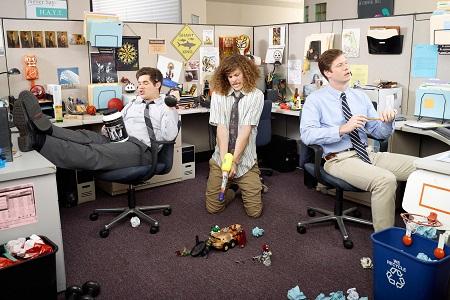Wash Your Hands and Other Great Workplace Tips
Published: Apr 13, 2016

Your resume says a lot about your work experience, but it doesn’t tell employers anything about the nasty personal habits you may have that alienate you from the rest of the office. And while it sounds harsh, the reality of the situation is, what your co-workers think of your personal flaws can be just as detrimental to your career as a poor work ethic, especially when these co-workers could turn into potential references. Here are some general tips you might want to follow in the workplace:
Be Cordial – No one is asking you to shake the hand of everyone you walk past, but if you pass someone in the hall, it might be nice to smile or nod your head to acknowledge their presence. It goes a long way in building connections with people you may have to work with in the future. If you come across like you are too good for your co-workers, you never know what important decision-maker you might rub the wrong way; thereby hurting your opportunities to work on specific projects that might interest you or could advance your career.
Practice Bathroom Etiquette – Wash your hands after you use the bathroom. It seems like common sense and yet, it isn’t. People think that because their hands didn’t come in contact with anything, they don’t have to wash them. But perception is reality. If you finish your business and walk out of the bathroom without washing your hands, your co-worker is thinking two things: “I will never shake that person’s hand again,” and “Gross…what if he touches something I touch.” The same goes for your need to call a friend or check your social media accounts while sitting in the bathroom stall. Crapper + Cell Phone = Disgusting…because no one knows for sure what was touched and when and now you are suddenly a walking germ.
Keep It Clean – When you own a home, you can make it as messy as you want; when you rent a home, you can technically do the same thing. But when you work for someone, you don’t own or rent that space and should respect who does, especially since there is always the possibility that a potential client or customer might come to the office for a meeting and get a very poor perception of the company based on its employees’ messy ways. Keep your workspace clean - your office supplies in order, wash your mugs (something’s growing in there and HR did not approve of the new addition to staff), throw out your soda cans and potato chip bags (this isn’t an art project) and keep things looking professional. Then go home and throw your clothes on the floor if that makes you feel better.
Keep Personal Calls to a Minimum – I know you think your life is intriguing and maybe it is, but that doesn’t mean everyone wants to hear about your triumphs and failures. If a personal call comes through and it is going to be a lengthy conversation, take it out of the room. People are working and can easily be distracted by personal calls or outside group discussions. To avoid contributing to the problem, limit cell phone use to a minimum, especially in meetings where texts, emails and other social engagements make you look rude even if you consider yourself an excellent multitasker. Your focus should be on work and the rules of the workplace (even if some of those rules may be outdated).
Call in Sick – It’s great that companies give out Perfect Attendance Awards. Wait, no they don’t, so why did you come in looking like death? If you’re sick and you work in the close proximity of others, stay home. There is no need to potentially pass it on to others just because you feel guilty calling out sick. You may think your boss will applaud your commitment, but they may be angered by your lack of respect for others. We’ve all been in the situation where the illness spreads from one person to the next to the point where the original culprit ends up getting sick again. When this happens, workplace productivity suffers. But if you call in sick, you may be able to nip it in the bud before it gets out of hand. Of course, that means using your sick days for when you’re sick, not for when you want to play golf or go to the beach.
Follow me on Twitter.
Follow Vault on Twitter and Instagram.
Read More:
The Personal Items You Need At Your Desk
Why I Work Like a Millennial
3 Steps to Making the Most of Networking Events
